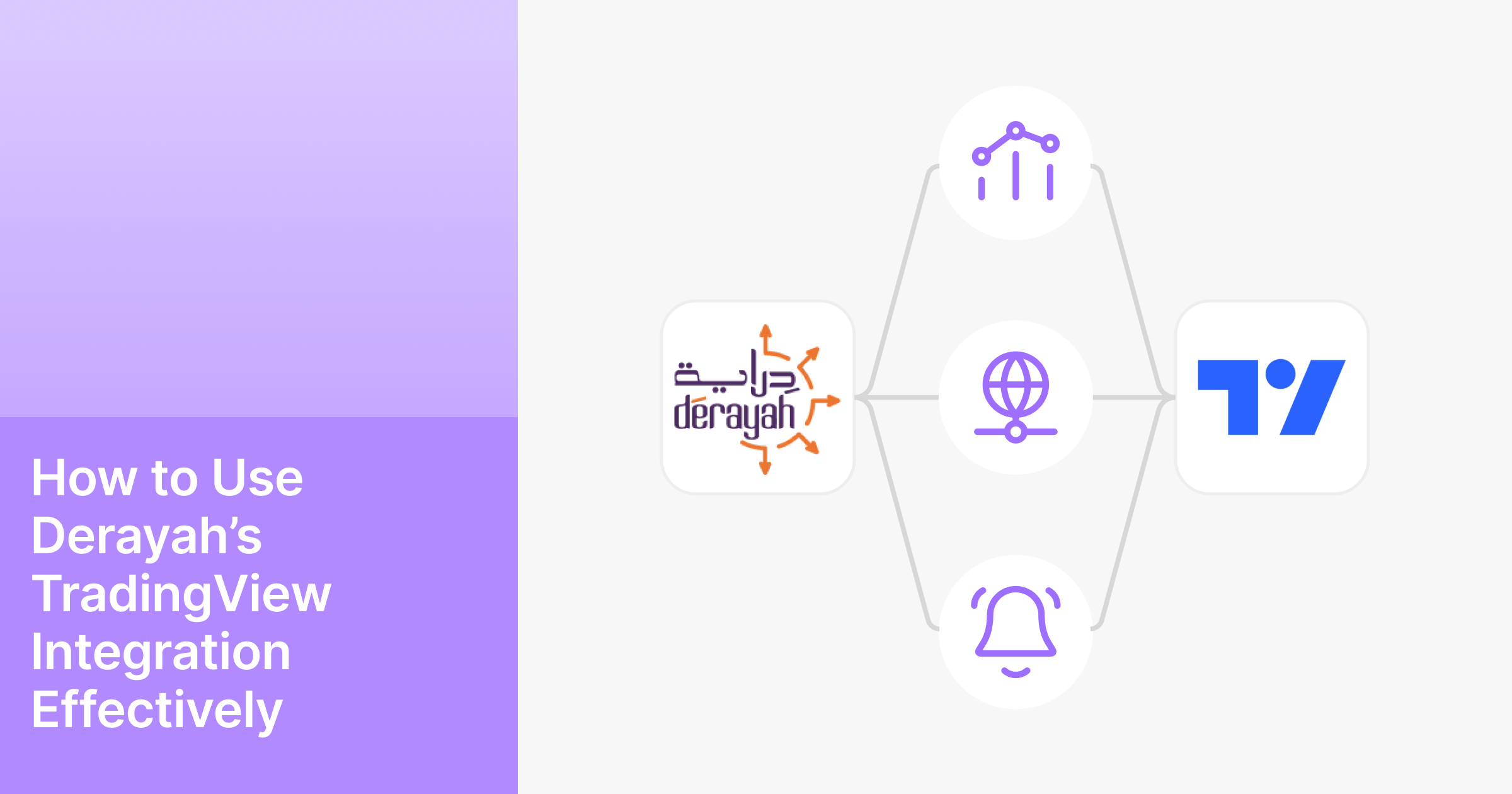Understanding the Basics of Mutual Funds and How They Work in Saudi Markets
In the world of investing, many individuals face challenges such as limited experience or a small amount of capital, which can make entering financial markets directly more difficult. Mutual funds have emerged as a practical solution to address this. They pool together money from multiple investors and invest it collectively in a diversified portfolio of assets, all managed by a professional team.
Mutual funds are easy to understand. They combine resources to invest across many diverse investment classes (stocks, bonds, or real estate) to manage risk and create the potential for more balanced and stable returns. The blend of diversification with professionally managed funds can provide a practical alternative for investors with different levels of experience.
In Saudi Arabia, during the transition of Vision 2030, with investment opportunities opening and the financial sector establishing itself, mutual funds have become a valuable investment vehicle. They offer lower-risk exposure to new markets within a clearly defined regulatory framework designed to protect investors and support long-term market performance.
What Are Mutual Funds and How Do They Work?
Every investor naturally wants to optimize return with the least amount of risk. Investing in a mutual fund is one way an investor could accomplish a more balanced risk-return investment strategy. A mutual fund is a financial product that gathers funds from a number of investors to invest across many different assets. Instead of having to manage their own investments, investors rely on the professional management team to manage the mutual fund.
Capital is pooled together, and then the managers systematically purchase investment products, or underlying assets, across a number of different asset classes that retail investors generally can’t access, like stocks, bonds, or real estate. Professional management can enhance the potential return to investors as it manages risk through broadening investment portfolio exposures.
Types of Mutual Funds: A Range of Investment Options
Unlike stocks and bonds, which can be more rigid in how to invest in them, one of the advantages of mutual funds is the set of mutual fund options available that allow investors to choose investment types that align with their financial goals and risk tolerances. Each fund type has a different focus on a specific asset class that can influence potential returns and inherent risks.
Stock-Focused Funds
Equity funds invest most of their capital in shares of companies, either domestic or foreign. They are an indirect way for investors to get exposure to the potential growth in the business of their underlying shares over the long term.
Equity funds can generally deliver good returns over the long term, particularly in technology sectors or renewable energy. However, equity funds typically can be volatile in shorter time horizons. Prices can change based on market news, changing economic conditions, or the company’s performance. In order to access the expected return, investors would likely need to accept the random changes in price on a shorter horizon, so it helps to have an investor who can accept short-term changes in price and pursue returns in the long run.
Bond-Focused Funds
These funds invest in fixed-income instruments such as government or corporate bonds. Bonds represent medium- or long-term loans that pay interest either at a fixed or variable rate.
Bond funds typically come with lower risk compared to stocks, making them a suitable choice for investors seeking steady income or more capital protection. They can also help balance an investment portfolio, especially for cautious investors aiming to limit exposure to volatile markets.
Real Estate Funds
Real estate mutual funds allow investors to participate in the property market without directly purchasing physical assets. These funds invest in income-generating real estate, including commercial buildings, residential complexes, shopping centers, and hotels.
These funds often combine rental income with the possibility of long-term property appreciation. They offer a way to access the real estate sector—which often requires high capital and active management—through a more accessible and passive investment vehicle.
Matching Fund Type to Investment Goals
Choosing a mutual fund is not a one-size-fits-all decision. It depends on several personal factors, including financial goals, investment horizon, and how much risk an individual is willing to take.
- Financial Objectives
- Capital Growth: If your goal is long-term growth, equity funds may be more appropriate, though they come with more ups and downs.
- Stable Income or Capital Preservation: Bond funds can offer more predictability with lower risk.
- Balanced Growth and Income: Real estate funds might provide a mix of consistent income and potential for appreciation.
- Investment Horizon
- Long-term (5+ years): Stock funds are better suited for those with time to absorb market fluctuations.
- Medium-term (2–5 years): Bond or real estate funds may offer better stability and regular returns.
- Short-term (less than 2 years): Short-term bond funds or money market funds might be safer options, especially if capital preservation is a priority.
- Risk Tolerance
- Higher Risk Appetite: Investors who can tolerate seeing value decline temporarily might benefit from Saudi equity funds or more volatile real estate funds.
- Lower Risk Appetite: Conservative investors may prefer bond funds or stable real estate investments with less fluctuation.
How Mutual Funds Operate: Structure and Responsibilities
To understand mutual funds better, it’s useful to look at their internal structure and how they function.
Fund Structure
A mutual fund typically involves:
- A fund manager, who makes investment decisions.
- A custodian, who holds the fund’s assets.
- Investors, who own units or shares in the fund.
- Intermediaries or brokers, who facilitate the buying and selling of fund units.
Fund Manager’s Role
The fund manager is responsible for selecting investments based on thorough market analysis. Their job is to optimize performance while keeping risk under control.
Capital Collection and Investment Process
Investor funds are collected and then allocated across a range of asset classes based on the fund’s strategy. The aim is to strike a balance between potential returns and manageable risk.
Why Mutual Funds Matter in Saudi Arabia’s Evolving Market
Economic Trends and Vision 2030
Saudi Arabia’s Vision 2030 aims to diversify the national economy, encouraging investments in sectors such as technology, energy, and tourism. This creates new opportunities for mutual funds to tap into growing markets.
Market Access and Diversification
Through mutual funds, investors can gain exposure to both domestic and international markets that might be hard to access on their own. This broadens diversification and can reduce the impact of poor performance in any single sector.
Reducing Risk through Diversification
Diversifying investments across different assets helps mitigate risk. Professional fund management enhances this by ensuring that allocation decisions are based on research and strategy rather than guesswork.
Choosing the Right Fund: Building a Financial Strategy
Defining Your Investment Goal
Clearly define your investment goals. Are you looking to build wealth over time, generate income, or preserve your savings?
Assessing Risk Tolerance
Every investor has a different comfort level with risk. Understanding your own risk profile is essential when selecting a fund.
Practical Strategies for Selection
- Consider Past Performance: Look at the fund’s track record of performance over some years, particularly at volatile times. Previous results cannot ensure future outcomes, but they can give an idea about trends.
- Examine the Track Record of the Manager: The track record of the fund manager and his decision making capability are important. Examine their experience of the fund management and their performance in general.
- Compare Fees and Costs: There are fees on all funds, and that will hit your returns. Determine whether the costs match the value.
- Consider Financial Advice when in Doubt: When in doubt, get a licensed financial advisor who can see to it that you can make the best decisions regarding your finances.
Fees and Charges: A Key Factor in Net Returns
Fees are an important part of mutual fund investing because they impact the actual return you receive.
Common Types of Fees
- Management Fees: Charged annually for managing the fund.
- Subscription or Redemption Fees: May apply when entering or exiting a fund.
- Performance Fees: Charged by some funds if specific targets are met, usually found in actively managed funds.
Fee Impact on Performance
Higher fees can eat into returns, even if the fund performs well. Understanding the fee structure before investing is essential to avoid surprises.
H3: Importance of Transparency
Being aware of all costs helps you make more informed decisions. A fund with lower fees and consistent performance may offer better value in the long run.
Evaluating Long-Term Performance: Staying on Track
Choosing the right fund is only the beginning. To get the most from your investment, it’s important to track how it performs over time.
- Monitor Reports: Review the fund’s regular reports and compare its performance against relevant benchmarks.
- Think Long-Term: Avoid reacting to short-term market movements. Mutual funds often deliver more meaningful results over several years.
- Focus on Key Metrics:
- Average annual returns over 3–5 years.
- Volatility and risk levels.
- Net returns after fees.
Tips for Sustainable Investing
- Stay informed and continue learning.
- Avoid emotional decision-making during market swings.
- Diversify your investments to reduce risk.
- Only invest when you fully understand the fund’s objective and asset composition.
- When in doubt, consult a qualified financial professional.
Investment in Saudi mutual funds may be an effective element of achieving a variety of financial objectives. Nonetheless, it requires making informed decisions, performance monitoring, and fund selection to meet the individual’s requirements.
Disclaimer: All information provided is for educational and awareness purposes only and does not constitute a recommendation or invitation to make any investment decision. Past performance is not indicative of future results. Please consult your financial advisor before making any decisions.
Derayah Financial is licensed by the Capital Market Authority under License No. 27-08109 dated 19/06/1429 H (23 June 2008).


